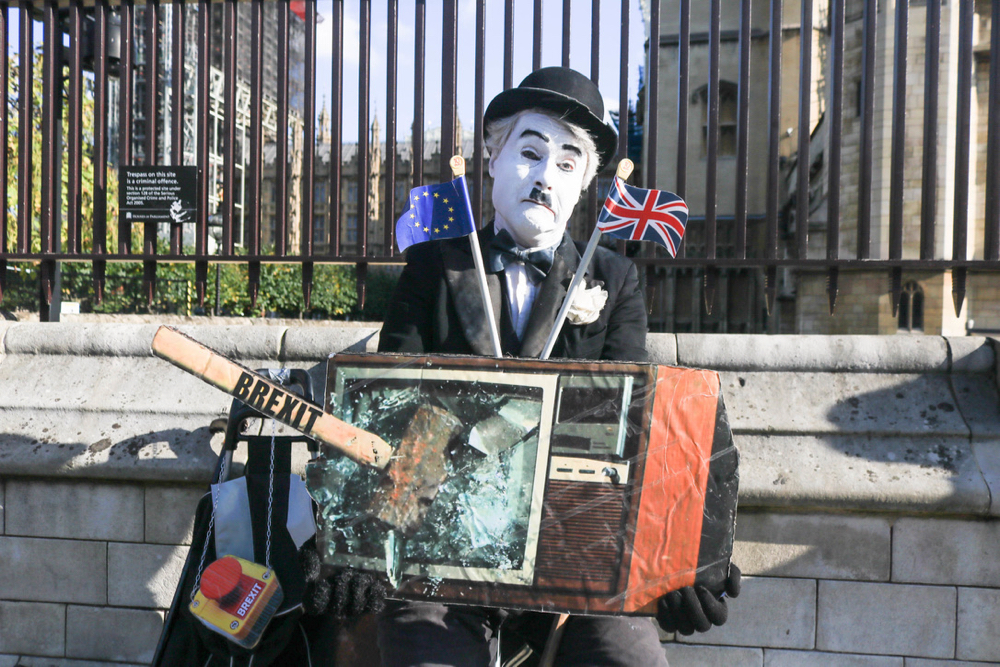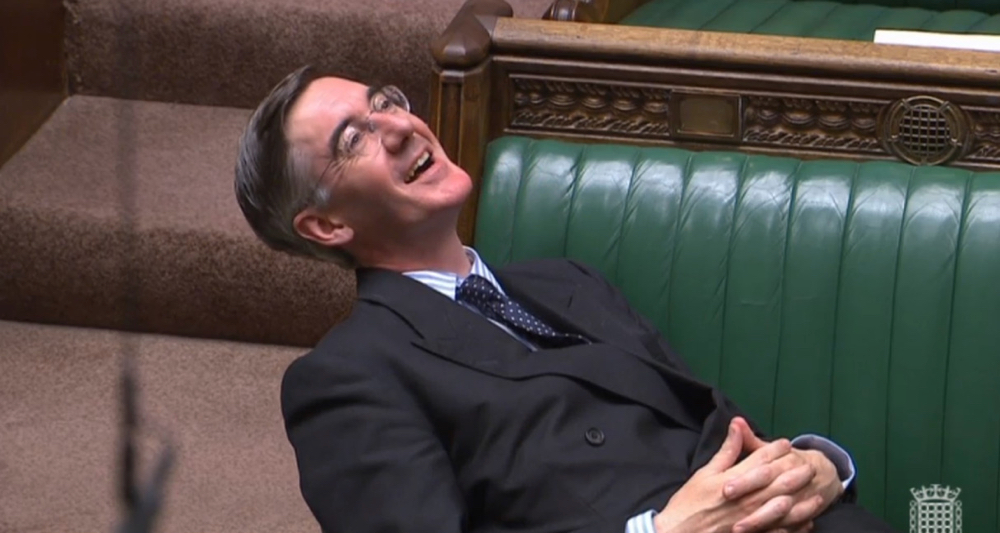On Radio 4’s Thought for the Day, Catherine Pepinster, a former editor of The Tablet and a respected Catholic author and commentator, gave listeners a little lesson in Catholic teaching.
Referring to Jacob Rees-Mogg's recent pronouncement in Parliament that the Brexit deal is in purgatory, she reminded us that purgatory was not a final destination – soon it would emerge cleansed of its negatives to sit in the sunlight at the right hand of the prime minister whoever that may be after the next election.
It is always tricky to do politics on Thought for the Day which has lost its star speakers like Rabbi Blue or the pro-Brexit Canon Giles Fraser. But Catherine Pepinster, perhaps because she is a very focused journalist, usually manages to pull it off.
Yet if religious metaphors must be used in our debate on Europe perhaps the concept of “Brexiternity” is more appropriate. An eternity of difficulties awaits us even if Boris Johnson can persuade the House of Commons to vote for the three-point Withdrawal Treaty.
There have been many metaphors in the Brexit saga since June 2016 from Theresa May’s “No Deal is Better than a Bad Deal” to Boris Johnson’s “Die in the Ditch” unless the UK was amputated from Europe by the end of October.
The most erroneous metaphor forever on the lips of Conservatives and some Labour MPs is that Boris Johnson should be given the crowning victory of approval by the Commons for his Brexit Withdrawal Agreement negotiated with Brussels because it it is necessary to get Brexit “over the line”.
As Doncaster MP Caroline Flint put it in September when she announced that 50 Labour MPs would follow her in to the Tory lobby to back Brexit, it was about getting to “the other side of a deal”. In the event just five Labour MPs, all retiring at the next election, followed her into the Conservative lobby in the Commons in the key vote on Mr Johnson's deal.
They were offset by the 10 DUP MPs who spotted that Northern Ireland was being quietly but firmly detached from mainland Britain as customs declaration forms will now be needed to send any goods or agricultural produce from Northern Ireland to England or Sotland.
Peter Kyle, the Labour MP, who wants a referendum as a condition for supporting Mr Johnson’s Withdrawal Agreement also proclaimed: “We are well and truly into the end game.”
Ms Flint and Mr Kyle are on opposite ends of Labour on the issue of Europe but they are both wrong. There is no vote in the Commons that releases Brexit from Purgatory and brings closure to our divisions over Europe.
At best the Withdrawal Agreement with its three points on money owed, the status of EU citizens in Britain, and no physical borders in Ireland is the barest of bare minimums.
All major issues that in Britain divide those opposed to Brexit and those who are willing to accept Brexit remain to be negotiated. This will take many years, a Brexiternity of tough, bad-tempered talks, that will impact on politics, governance, business, the plans of Brits to live, work and retire in Europe, our universities, the supremacy of different legal systems, the food we eat and Britain’s geo-political heft.
Jeremy Corbyn’s vision of his Brexit deal for example supposes the UK opts out of the Single Market’s four freedoms. This won’t be accepted by the EU27 whose leaders are unanimous in defending the integrity of the Single Market.
So what happens then? Five major industrial federations have come out from under the CBI duvet to say that any form of Johnson or Corbyn Brexit will damage jobs and investment.
The EU-Canada Free Trade Agreement was limited to goods like timber, some food, and engineered products. It took seven years to negotiate and ratify. 80 per cent of the UK economy is based on services – banking, insurance, pension and investment funds, education especially universities, aviation, London as the hub for a £2 billion export trade in TV films and videos, health care, legal advice, consultants and tourism. None of these sectors are covered by normal free trade agreements or by World Trade Organisation rules.
British citizens have got used to working, living and retiring in Europe with all health care covered under EU rules. It will take ages to negotiate bi-lateral deals with each EU member state as once we become what is called a “Third Country” after Brexit we lose all EU protection and each nation on the continent has its own rules on accepting third country nationals to live or retire in their territory.
The cliché of “getting over the line” masks the fact that the impact of Brexit on Britain has hardly even begun. Catherine Pepinster’s Brexit purgatory is really a Brexiternity as government, political parties, business and invididual citizens are going to have to deal with the fall-out of Brexit for years to come.
Denis MacShane is the UK’s former Minister of Europe. His new book Brexiternity: The Uncertain Fate of Britain is published by I.B. Tauris-Bloomsbury



 Loading ...
Loading ...
What do you think?
You can post as a subscriber user ...
User comments (0)